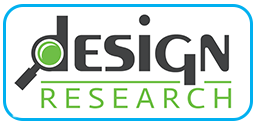“After searching for data on home décor styling trends, Assortment Styler was the only report with details on how Americans decorate their homes. The report gave us the competitive advantage across multiple titles of knowing the top home décor styles and historical and future trends.”

Manufacturers Should Be Talking Up Their New Sustainable Products
The last time this blog mentioned sustainability was April, 2020. That certainly wasn’t the end of the issue. If anything, the pandemic, with its forced focus on the home, brought even more interest in safe, healthy and sustainable products. Think about some of the things that have been happening in the world. Fast drink manufacturers are now urging us through television commercials to recycle their bottles. Method soap has switched to more sustainable glass bottles. Grove products is proudly advertising how they are leaving plastics behind completely by 2025 in ubiquitous television commercials; a strategy that is both building their brand recognition and positioning them as a progressive company in the sustainability sphere – a great example of benefitting from positive change . Here in New Jersey, plastic bags will be eliminated early in May as they have already been in many other places. Wind and solar power construction are booming as are local solar installations on residential and commercial rooftops and demand for electric cars is greater than ever (Tesla sold over one million cars in the first quarter and is now worth sixteen times what Ford is even though Ford sells four times as many cars.)
In short, the sustainable future is here. Has it arrived at your company? Do you have a good story to share with your consumers? Are you doing so? Is it effective? Believable? Memorable? Will it lead to increased sales and profits? Do you need help in communicating the benefits? Doing the right thing is great. Getting credit for it can be difficult. Not doing it can be terrible.
Everything you do to improve your products and increase your sales should also enhance the awareness and equity of your brand. (The Grove advertising campaign is a great example of this.) Enhanced brand awareness and equity will support your sales and support your profit margins. Only improving your products without enhanced messaging is a wasted opportunity. Here is how we can help you to capitalize on that opportunity.
The fundamentals of testing ad campaigns are also the fundamentals of evaluating other communications efforts to make sure they are maximized:
Is the message received?
Did the target audience get it? How do you know? Do you monitor consumer awareness? It’s not hard, especially with established brands.
Is the message understood?
Suppose you have introduced a new product that has enhancements that are planet friendly. How do you explain the benefits? Are they understood? Just name something in a green-sounding way is not enough. Just listing a green feature without explaining it is not enough. It will only benefit you if it is understood.
Is the message believable?
Take recycling. Nearly every product has some kind of recycling symbol or label on it. But is it to be believed? Personally I am appalled by all of the plastics I have to throw away because they are not “1’s” or “2’s”; the only types of plastics that our municipal recycler accepts. The recycling triangle means nothing, it’s the number that matters. I find the triangle not believable and I resent all the products that are not recyclable and the retailers that continue to carry them as well. (I also resent the companies that feature a triangle that is so small that it is impossible to read the number in it. I can’t help but believe that is deliberate.)
And most importantly, is the message right?
Is the message compelling? Does it motivate consumers to purchase? It is great that you have changed your process to save water or energy or that you have made your product recyclable for the first time. But have you explained why that is important and do consumers agree that it is important enough to buy your product to replace what they currently own and/or to buy your product versus someone else’s product? Research can help you identify what’s important and compelling to consumers and then clarify the message for maximum impact.
Does sustainability really matter to your consumers? You bet it does! Every survey we’ve seen in the past couple of years underscores how concerned people are about the environment. We just did a major worldwide study on home health environments and levels of concern about health are higher than we’ve ever seen. Perhaps the pandemic has helped to heighten concern and awareness of how vulnerable we are. Perhaps the cleaner air that resulted from the initial lockdown raised awareness. Perhaps a general concern about global warming is behind it. Whatever the source of concern, consumers care a lot and your actions should reflect that.
The universe of health and safety in the home is changing rapidly. All manufacturers need to embrace that change in their products and processes. In so doing, manufacturers should use research to understand what motivates consumers, what’s important to them, clarify messaging, and make sure you are getting maximum credit for your investments, through both sales and profits.
Click here for more information now: Rick@Designres.com or call 609-896-1108.



